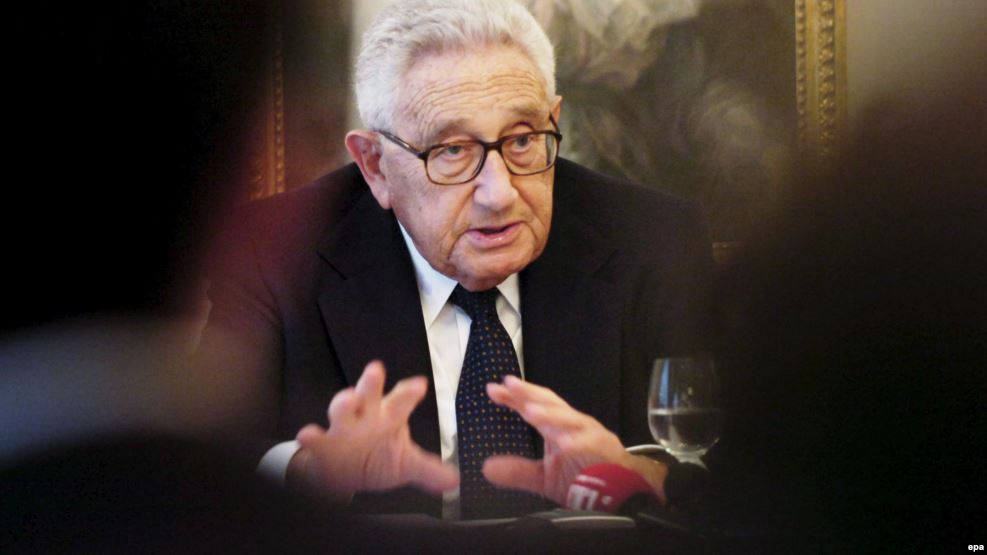There is probably enough evidence now that Washington is pursuing a two-way containment strategy against China and Russia, for the obvious purpose of safeguarding America’s global hegemony going forward. One of the preeminent sages on US foreign policy, Henry Kissinger, has long advised against it, arguing that one cannot be fought without pacifying the other, but the current establishment seems to have dropped previous paradigms and is venturing on to new pastures.
Apart from the ongoing US-Sino trade war suspicion has increasingly been raised, and not just by way of Beijing directly accusing Washington to interfere in Hong Kong’s affairs, that state sponsors are supporting protests there on an almost daily basis, with no end in sight and violence sadly on the rise. None of us can know for sure, and the rest is usually conspiracy theories, but it appears the more radical wing of the protagonists are well equipped and in command of formidable logistics. Simple math prescribes substantial funding for these groups.
If anyone wanted to seriously hurt China and its economy, Hong Kong offers the perfect Achilles heel. The city has given Beijing the liberty of perpetuating a still rather closed economic system while tapping into one of the most open and largest capital markets in the world. Were anything to happen to Hong Kong and capital flight of a massive nature to occur, Beijing would probably be forced to fan out its future offshore arrangements to other countries it does not have political control over.
Potentially worse for the leadership, it might have to rethink its model altogether. Banning Huawei from incremental supplies is one thing, and Beijing’s instinctive reaction has so far been to close its system even more. Choking the mainland by severing international capital flows through Hong Kong would be quite another. In other words, anyone on the planet who was bent on breaking China’s ascendency and altering its business model reliant on state sponsorship would be interested in more disruption across Hong Kong…
… insofar as, if Beijing took the bait and engaged in ending the riots, the Western community would in all likelihood follow Washington’s call and ignite a spree of a sanction regime that could, potentially indefinitely, paralyse Hong Kong and its crucial function for China. And we might be closer to such a scenario than we would like to be. A deluge of protesters descending on Hong Kong’s airport yesterday afternoon brought operations to a halt and caused the cancellation of all flights. Beijing’s hand might just be forced.
At the same time protests have erupted against Vladimir Putin and his regime in the streets of Moscow. To be sure, this could be a coincidence, but the Russian government suspects not. The Kremlin hasn’t been as straightforward as Beijing to accuse Washington of meddling in their affairs. Probably more elegantly, however, according to the
China Dailythe foreign ministry said that Moscow was aware of China’s suspicion of American inferences in Hong Kong and would treat it with all seriousness.
What’s more, and herein would lie the unintended consequence if Washington were behind either or both events, is that Russia announced it was seeking an exchange of information between their and China’s respective services and that Moscow and Beijing would discuss the issue soon. The politburo is likely to welcome such an advance, as the Russians are far more experienced by way of the Cold War and in a position to lend a helping hand in identifying and neutralising any covert operations.
It is an interesting message by the Kremlin to be given publicly. If today’s Washington is not willing to heed an old fox’s advice, then the rest of the world should be under no illusions that two targets may well organise themselves to become one, one to be reckoned with. I pointed at this potential development in a
postin late July. Ignoring Kissinger could be going down as the biggest geopolitical blunder America has ever carried out.
